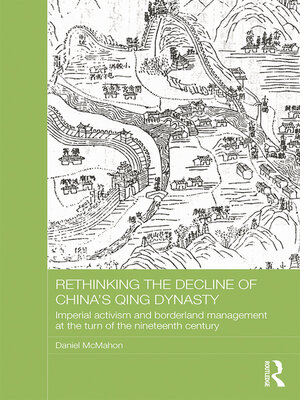Rethinking the Decline of China's Qing Dynasty
ebook ∣ Imperial Activism and Borderland Management at the Turn of the Nineteenth Century · Asian States and Empires
By Daniel McMahon

Sign up to save your library
With an OverDrive account, you can save your favorite libraries for at-a-glance information about availability. Find out more about OverDrive accounts.
Find this title in Libby, the library reading app by OverDrive.



Search for a digital library with this title
Title found at these libraries:
| Library Name | Distance |
|---|---|
| Loading... |
The many instances of regional insurgency and unrest that erupted on China's borderlands at the turn of the nineteenth century are often regarded by scholars as evidence of government disability and the incipient decline of the imperial Qing dynasty. This book, based on extensive original research, argues that, on the contrary, the response of the imperial government went well beyond pacification and reconstruction, and demonstrates that the imperial political culture was dynamic, innovative and capable of confronting contemporary challenges. The author highlights in particular the Jiaqing Reforms of 1799, which enabled national reformist ideology, activist-oriented administrative education, the development of specialised frontier officials, comprehensive borderland rehabilitation, and the sharing of borderland administration best practice between different regions. Overall, the book shows that the Qing regime had sustained vigour, albeit in difficult and changing circumstances.







